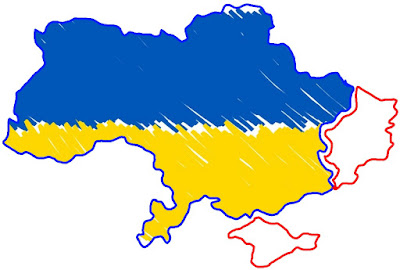It would be a "strategic mistake", as UK Foreign Secretary Liz Truss put it, for Russia to attempt to conquer Ukraine entirely.
However, expectations about Russia seizing all of Ukraine and depriving the country of independence seem to be only idle speculation based on the mere presence of many Russian troops near Ukraine. Britain and America have not seen any plans about a Russian attack.
For all we know, Russia intends to maintain such troops permanently for as long as there is still a potentially dangerous conflict in the adjacent Donbass region in Ukraine. The Russian troop presence near Ukraine is no more evidence of a Russian invasion now than in spring last year, when we received the same warnings. We have been through this before.
Preserving Ukrainian democracy
What seems new, though, is the scandalous political situation in Ukraine, in part created by Western blunders. US foreign policy figures such as Professor Michael McFaul assert that Ukrainian democracy is Russia's biggest fear. This seems unlikely, when considering the oligarch-ridden and corrupt state of Ukrainian politics.
Ukraine could even be plunging into an undemocratic abyss as President Volodymyr Zelensky seeks to arrest political opponents and the US helps demonise them. Two top opponents Zelensky has sought to imprison are Petro Poroshenko, Ukraine's president following the ouster of the pro-Russian Viktor Yanukovych, and Viktor Medvedchuk, who is considered the pro-Russian favourite in the Ukrainian opposition at present. Between them, these two figures and their parties represent many of the opposition seats in Ukraine's parliament. If the US cared about democracy in Ukraine, it would ask Zelensky to cut them some slack as the EU did.
Popular opposition media have faced total bans as well, on the same grounds of alleged treasonous activity. However, any opposition activity or different foreign policy views could be construed as treasonous to the incumbent government, making democracy nearly impossible. Rather than noticing this worrying trend, the United States encourages it.
Falsely labelling Ukrainian politicians as Russian agents
Medvedchuk's preference for good relations with Russia in no way invalidates his right to compete for democratic votes in Ukraine. Don't expect the Americans to see it that way, though. Don't expect them to think external American interference in the Ukrainian parliament is any obstacle to democracy, either.
Both the US and the UK seem to have started announcing Ukrainian opposition figures are Russian agents, and it is clearly false information, endangering their ability to work and even threatening their lives. This suggests the Western countries in question are insincere about bringing democracy to Ukraine and are only looking for expansion of Western power and alliances.
Consider also that any allegations about Russia illegitimately using politics to interfere in Ukraine behind the scenes are obviously hypocritical. To unearth these interferences would require the Americans or British themselves snooping around, interfering in Ukrainian democracy and picking favourites. Is our interference somehow inherently more democratic than others, even when not based on any vote or pertaining to any attempt to assess the democratic will?
Closer to the West doesn't necessarily mean democracy
Arrests of opposition, bans on media and labelling of opposition figures as Russian assets may bolster the Western hold over the Ukrainian government and bring it closer to the NATO orbit, but we should not confuse this with advancing democracy. It literally means denigrating the country's opposition and backing a regime that wants to maintain power.
We may be looking at an example of Western countries acting with no principles and simply waving around the word "democracy". The word is used as if it doesn't point to political practice. Instead, it is presented as an elusive justification for other practices, including tyranny.
The lost wars in Iraq and Afghanistan, both of which involved the US and UK implanting deeply unpopular regimes in the name of "democracy", without realising these regimes had no legitimacy, should be a warning about what could happen in Ukraine if the current policy is maintained.

